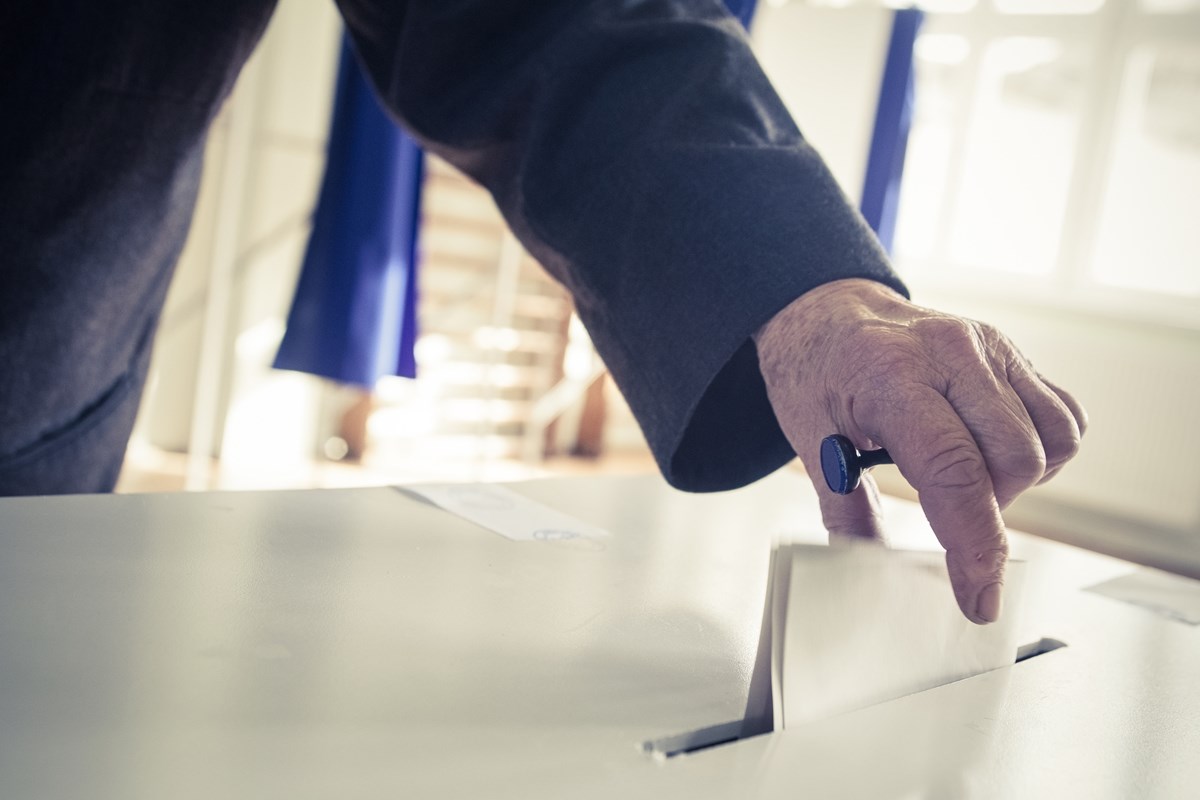Election Day is finally here. For the next 24 hours (and perhaps much longer) Americans will be glued to their television sets, radios, and computers to see who will occupy the Oval Office for the next four years.
In some ways this is an unfortunate reality. After all, the framers of the American system sought to avoid a strong federal government run by a powerful central figure.
Elections have consequences, however. So, in some ways our rapt attention is understandable, if not entirely justified. Yet it’s also important to not lose sight of other races and initiatives that also may affect our lives and liberties — state and local races, as well as congressional contests and ballot measures.
Ballot measures, in particular, are often overlooked by both voters and media.
Here is a quick look at a handful of key ballot measures to follow on Election Night in case the presidential race is too close to call (or your guy lost and you need something to brighten your evening just a little).
1. Marijuana Legalization
Five states — Arizona, Mississippi, Montana, New Jersey, and South Dakota — have initiatives that would legalize cannabis. Currently legal in 11 states, legalization would carry several benefits. It would create jobs, spark entrepreneurship, put many drug smugglers out of business, and result in fewer—way fewer—Americans put behind bars for non-violent crimes.
This would be a win for liberty.
Various polls suggest these measures are expected to pass in each state.
2. Gig Work in California
The future of gig work in California may hinge on the outcome of Proposition 22, a proposal designed to create an "independent contractor" designation for gig workers, allowing them to be classified as self-employed.
Essentially, Prop 22 would exempt many gig companies—DoorDash, Lyft, Uber, etc.—from AB5, legislation signed by Gov. Gavin Newsom in 2019 that required companies that hire independent contractors to classify them as full employees
Passing Prop 22 would be a win for workers, companies, and consumers. AB5 was a job-killing disaster, especially for women, and violated the rights of employees and companies to engage freely in a contract. As we’ve argued at FEE, workers should be free to pursue their own adventures and work on their own terms.
The reality is that gig work tends to offer a degree of flexibility, work-life balance, and other benefits that full-time work often does not, and attempts to force companies to classify gig work as full-time employment have put many workers out of a job.
A recent University of California, Berkeley poll shows Californians narrowly support Prop 22, 46-42 (with 12 percent undecided).
3. Rent Control on the Ballot
Prop 22 is not the only important ballot initiative Californians will decide on Tuesday. Proposition 21 would allow “local governments to enact rent control” on various types of housing.
This idea is … er … scary.
Economists disagree on a lot of things, but one thing on which they almost unanimously agree is that rent control policies are not good. As in really bad.
Rent control is “the best way to destroy a city, other than bombing,” observed Assar Lindbeck, the Swedish economist who chaired the Nobel prize committee for several years. By fixing prices, the policy discourages investment and construction, which results in poorer housing and less supply. This in turn hurts the poor.
It’s for this reason, no doubt, that California Gov. Gavin Newsom has come out against Prop 21, which was trailing by double digits in recent polls.
"Proposition 21, like Proposition 10 before it, runs the all-too-real risk of discouraging availability of affordable housing in our state," Newsom said in September, according to the Los Angeles Times.
A recent Berkeley poll suggests Californians will reject rent control at the ballot box on Tuesday.
— Jon Miltimore (@miltimore79) November 3, 2020
Gov. Gavin Newsom, who opposes the measure, says #Prop21 would diminish "availability of affordable housing in our state." pic.twitter.com/owrzKzXOAa
4. Prop 16: Legalize Discrimination
We’re already here, so why don’t we just stay in California and take a look at Proposition 16.
Arguably the Golden State’s most controversial initiative, Prop 16 would “repeal Proposition 209 (1996), which stated that the government and public institutions cannot discriminate against or grant preferential treatment to persons on the basis of race, sex, color, ethnicity, or national origin in public employment, public education, and public contracting.”
You read the words correctly. Prop 16 would allow government and public institutions to discriminate against individuals based on race, sex, and numerous other factors.
As I’ve previously explained, Prop 16 is basically the opposite of the Civil Rights Act of 1964.
Proponents of Prop 16 say their goal is to “advance true racial and gender equity in this state,” but similar to the segregationists of the past, they are seeking to use state-sanctioned discrimination to advance a cause they regard as noble. That’s a bad idea.
Fortunately, recent polling suggests Prop 16 is unlikely to pass, with Californians opposing the measure 38-49 (13 undecided).
5. Florida’s Risky Minimum Wage Gambit
Normally, many states have minimum wage proposals on the ballot in an election year. This year, there is just one—but it’s a big one.
Florida’s Amendment 2 would increase the minimum wage to $15 an hour, starting with a $10 hour rate beginning in the fall of 2021 that would increase gradually until reaching $15 an hour in 2026.
There are a host of problems with minimum wage floors—they reduce employment, diminish earnings of low-paid workers, make products more expensive, and have racist roots—as many FEE readers already know.
Unfortunately, minimum wage laws remain popular with the voting public, since many people remain unaware of these costs. (This is evidenced by the fact that support for the policy plummets when people are informed of these consequences.)
The amendment requires a 60 percent supermajority to pass. Polls currently suggest this one will be tight.





